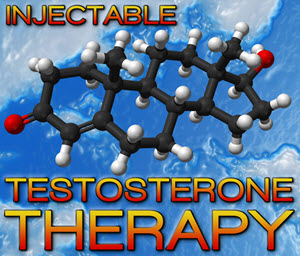Reading Time: 3 minutesIntroduction Traumatic brain injury (TBI) remains a significant public health concern in the United States, affecting millions of individuals annually. Among American males, who are at a higher risk of sustaining TBIs due to occupational and recreational activities, the long-term effects can be particularly debilitating. One such effect is hypogonadism, a condition characterized by reduced testosterone levels, which may further complicate the cognitive recovery process. This article delves into a longitudinal study exploring the influence of hypogonadism on cognitive function in American males with TBI, providing valuable insights into the intersection of endocrinology and neurology. Study Design and Methodology The … Read more
- About Escitalopram (139)
- Androderm Testosterone Transdermal Patch (125)
- Androgel Gel Formula (125)
- Andropause (184)
- Andropause Medical Research (126)
- Aveed Endo Pharmaceuticals Injectables (125)
- Blog Testosterone (3)
- Boosting Low Libido (139)
- Diets (31)
- Drugs (9)
- Endocrinology Men's Therapy (133)
- Endocrinology Scientific Research (126)
- Erectile Dysfunction Medicine (146)
- Fitness Training (139)
- Fortesta Transdermal Medicine (125)
- Genotropin HGH (135)
- Hair Loss Causes (139)
- Hcg Injections (4)
- Hormone News (41)
- Hormone Therapy Review (54)
- How To Inject Hormones (2)
- Hrt Fitness And Exercise (5)
- Human Growth Hormone (19)
- Human Growth Hormone Clinic (2)
- Human Growth Hormone Medication (145)
- Humatrope HGH (134)
- Hypogonadism Management (249)
- Hypopituitarism Management (134)
- Impotence Management (145)
- Injectable Delatestryl Endo Pharmaceuticals (125)
- Injectable Depo Testosterone Pfizer (125)
- Ipamorelin Research (145)
- Is It Low T (16)
- Jatenzo Oral Medicine (124)
- Kyzatrex Oral Pills (124)
- Labcorp Blood Testing Centers (1,809)
- Late-onset Hypogonadism Medical Science (126)
- Low Testosterone (242)
- Low Testosterone Medical Science (126)
- Male Fertility (7)
- Male Health (2)
- Male Sexual (3)
- Men's Health (15)
- Men's Health Medical Research (123)
- Natesto Gel Testosterone (125)
- Norditropin HGH (134)
- Nutropin HGH (134)
- Omnitrope HGH (134)
- Online Pharmacy (1)
- PDE5 Inhibitors And ED Treatment (144)
- Penis Health (127)
- Penis Shrinkage Causes (145)
- Premature Ejaculation Solutions (145)
- Primary Hypogonadism Scientific Research (126)
- Prostate Health Research (126)
- Quest Blood Testing Centers (1,325)
- Saizen HGH (134)
- Scientific Breakthroughs In Peptides (139)
- Secondary Hypogonadism Medical Science (126)
- Semaglutide Treatments (144)
- Sermorelin Therapy Highlights (145)
- Serostim HGH (134)
- Sexual Dysfunction Causes (134)
- Soft Erection Research (145)
- Sports Medicine Science (126)
- Stendra Avanafil Therapy (145)
- Striant Testosterone Buccal System (124)
- Tamoxifen Therapy Insights (138)
- Testical Science Medical Research (126)
- Testim Transdermal Gel (125)
- Testosterone And Cancer (2)
- Testosterone Clinics (408)
- Testosterone Cream (37)
- Testosterone Cypionate (66)
- Testosterone Cypionate Research (126)
- Testosterone Deficiency Syndrome Research (126)
- Testosterone Enanthate Medical Research (126)
- Testosterone Gel (96)
- Testosterone Information (1,294)
- Testosterone Injections (54)
- Testosterone News (34)
- Testosterone Propionate Medical Science (126)
- Testosterone Replacement For Men (6)
- Testosterone Replacement Therapy (149)
- Testosterone Replacement Therapy Medical Science (126)
- Testosterone Therapy (12)
- Testosterone Undecanoate Research (126)
- Testsoterone Androgen Hormones (145)
- Tlando Oral Tablets (120)
- Urology Insights For Men (133)
- Urology Medical Science (126)
- Viagra For Erectile Dysfunction (145)
- Vogelxo Transdermal Gel (125)
- Chronic Fatigue’s Impact on Soft Erections in American Men: Mechanisms and Management
- Jatenzo’s Impact on Thyroid Function in American Males: A Comprehensive Review
- LOH and Sarcopenia: Impacts on Muscle Strength in Aging American Men
- Urological Advances Enhancing Ureteral Stone Management in American Men: A Review
- MEN Syndromes in American Men: Diagnosis, Treatment, and Emerging Therapies
Free Testosterone Consultation
Our Staff
* U.S. Citizens 30 Years of Age of Older Only*
Testosterone Products
HRT Health Categories
Testosterone Fit And Healthy
Recent Posts
Therapy Benefits
Testosterone Molecules For Health Solutions
Five Surprising Testosterone Benefits:
HGH Specialists In Testosterone Therapy
Call Us Today
Medical Forms
Testosterone Therapy
Medical Excellence
Testosterone Decline

















